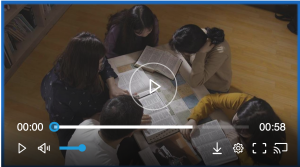March 1–7
Doctrine and Covenants 20–22
“The Rise of the Church of Christ”
As you read Doctrine and Covenants 20–22, be open to the impressions of the Holy Ghost. Consider recording them so you can refer back to them.
Record Your Impressions
Still, some people wonder, why is an organized Church necessary? The answer may be found, at least in part, in the revelations connected with that first Church meeting in 1830. Here, blessings are described that would not be possible if the true Church of Jesus Christ had not been “regularly organized and established” in the latter days (Doctrine and Covenants 20:1).
See also Saints, 1:84–86; “Build Up My Church,” Revelations in Context, 29–32.

Ideas for Personal Scripture Study
Doctrine and Covenants 20:1–36
The Church of Jesus Christ of Latter-day Saints is founded on true doctrine.
Section 20 is introduced as a “revelation on Church organization and government” (section heading). But before outlining Church policies, priesthood offices, and procedures for performing ordinances, this revelation begins by teaching fundamental doctrine. As you read the first 36 verses of this revelation, ask yourself why that might be. You might also make a list of the gospel truths you find. Here are some examples:
-
The Book of Mormon and its role in the Restoration (verses 8–12)
-
The nature of God (verses 17–19)
-
The Atonement of Jesus Christ (verses 20–27)
Why would these truths be important to emphasize as the Church was being established?
Doctrine and Covenants 20:37, 75–79
Sacred ordinances are an essential part of the restored Church.
When the Church was organized, the Lord taught His Saints about sacred ordinances, including baptism and the sacrament. As you read the instructions “concerning the manner of baptism” in verse 37, think about your own baptism. Did you have any of the feelings described in this verse? Do you have them now? Ponder what you can do to keep vibrant your “determination to serve [Jesus Christ] to the end.”
As you read about the sacrament in Doctrine and Covenants 20:75–79, try to read these sacred prayers from the perspective of someone hearing them for the first time. What insights do you receive about the sacrament? about yourself? How might these insights affect the way you prepare to take the sacrament this week?

The sacrament is a sacred ordinance.
Doctrine and Covenants 20:38–60
Priesthood service blesses Church members and their families.
If someone asked you to name the duties of a priesthood holder, what would you say? Read Doctrine and Covenants 20:38–60, which lists the duties of various priesthood offices. Does anything in these verses change the way you think about priesthood duties and how the Savior does His work? How have you been blessed by the work described in these verses?
To learn about how women exercise priesthood authority in the work of the Church, see Dallin H. Oaks, “The Keys and Authority of the Priesthood,” Ensign or Liahona, May 2014, 49–52.
The Church of Jesus Christ is led by a living prophet.
What do you learn from Doctrine and Covenants 21:4–9 about the words of the Lord’s prophets? Consider the promises described in verse 6 for those who receive the Lord’s words through His prophet. What do these promises mean to you?
How can you receive the living prophet’s word “as if from [God’s] own mouth”? (verse 5). What counsel has today’s prophet given that could lead to the blessings promised in verse 6?


Ideas for Family Scripture Study and Home Evening
- Doctrine and Covenants 20.
What would we say if someone asked us why we need the Church? What answers do we find in Doctrine and Covenants 20? See also D. Todd Christofferson, “Why the Church,” Ensign or Liahona, Nov. 2015, 108–11.
- Doctrine and Covenants 20:69.
What does it mean to “[walk] in holiness before the Lord”? It might be fun for family members to draw or write on pieces of paper some things that could help them walk in holiness or things that could distract them from doing so. Then they could create a path using the papers and try to walk on the path, stepping only on the drawings that will bring them to Christ.
- Doctrine and Covenants 20:37, 71–74.
If someone in your family is not yet baptized, these verses could lead to a discussion about how to prepare for baptism (see verse 37) and how baptisms are performed (see verses 71–74). Family members could share pictures or memories from their baptismal day.
- Doctrine and Covenants 20:75–79.
How could your family use these verses to prepare for meaningful, reverent experiences with the sacrament? These verses might suggest things you could ponder during the sacrament, and family members could find or draw pictures of those things. As appropriate, you might bring those pictures to your next sacrament meeting as a reminder of what to think about during the sacrament.
- Doctrine and Covenants 21:4–7.
Consider inviting family members to look for words and phrases in verses 4–5 that teach us about following the Lord’s prophet. What does it mean to receive the prophet’s words in patience? in faith? When have we received the blessings promised in verse 6?
For more ideas for teaching children, see this week’s outline in Come, Follow Me—For Primary.
Suggested song: “The Church of Jesus Christ,” Children’s Songbook, 77.
Improving Our Teaching
Emulate the Savior’s life. “The Savior’s power to teach and lift others came from the way He lived and the kind of person He was. The more diligently you strive to live like Jesus Christ, the more you will be able to teach like Him” (Teaching in the Savior’s Way, 13).

Oliver Cowdery Ordains Joseph Smith, by Walter Rane

